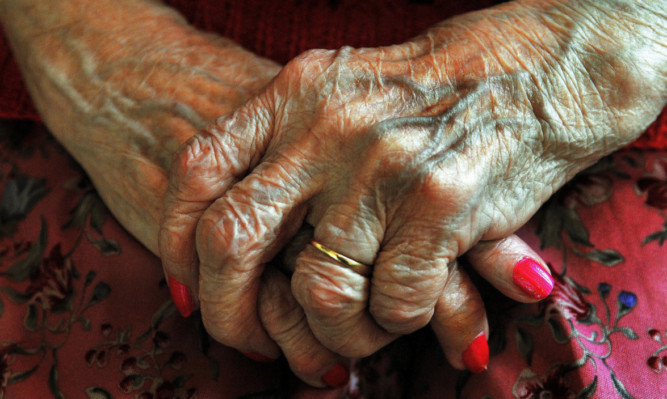Angus Council has been slammed for cutting in half the number of hot meals it delivers through its meals-on-wheels service.
Pensioners’ relatives have criticised the council’s decision to drastically cut the delivery of meals to housebound residents in the area from two deliveries a day to one.
A leading national charity, working on behalf of the country’s elderly, has claimed Angus OAPs could be the victims of “a race to the bottom” under the cost-cutting measure.
The council delivers approximately 3,500 hot meals to the homes of around 450 residents every week. Recipients can choose to have a hot meal delivered to their home at lunchtime, in the evening, or both.
The authority is cutting that service to the delivery of one meal during the day, which will come with a sandwich for the resident to have for dinner.
The cuts will save the authority an estimated £400,000 a year almost three-quarters of the current cost but the move has been criticised by those close to people using the service and charities that look after the needs of the elderly.
A service user’s relative said: “What they are talking about doing is only having one delivery, which would be the warm meal at lunchtime and then leaving a sandwich for the person’s tea, which a carer would have to make sure they have eaten in the evening.
“The council are doing this because it’s costing a lot of money and they are finding ways of cutting costs but they are putting the elderly at risk.”
The relative added: “It’s fine at the moment as it has been nice and warm the last few days, but giving an elderly person a sandwich is not fair and it will be getting colder soon, meaning they will need a warm meal and the council is going to take this away from them.
“All the people that are paying for this service have received letters telling them what is happening and are not happy that’s just the ones that aware of what is happening.
“What happens to ones that have dementia and don’t understand? It’s not fair.”
A spokeswoman for the authority said: “The net cost of providing this level of service is around £580,000 each year.
“The council will be changing the service later this year, moving to one delivery of community meals each day. People will have the option of having a meal at lunchtime and/or a sandwich option, delivered at the same time, for tea-time.
“This change will save £400,000 each year.
“The changes are based on the findings of the council’s review of the service, to determine if a more cost-effective level of service could be provided but one that would still meet residents’ needs.
“Part of that review included a survey of Scotland’s 32 councils. That revealed that 23 councils provide eligible residents with one hot meal each day, six councils (of which Angus is one) currently deliver two hot meals a day; and three councils provide no meals service at all.”
Despite the council’s defence of the cuts, charity Age Scotland said service reviews that promote a “race to the bottom” in terms of cost could have an impact on those using the facility and society as a whole.
Policy, research and influencing director Susanne Cameron-Nielsen said: “Malnutrition is a significant issue, not just for older people themselves but also for health and social care systems as it presents them with a massive financial burden.
“It predisposes to disease, delays recovery from illness, adversely affects wellbeing, quality of life and clinical outcome and has major economic consequences.
“It negatively affects health and wellbeing and reduces the likelihood of independence. The provision of food for older people in their own homes varies and it is not always aimed specifically at the older population.
“Indeed, in some areas meals on wheels are provided using the same menus that are used for school meals. The nutritional needs of food required by these two populations are extremelydifferent, with the result that older people may not be able to eat the food provided or fully benefit from its nutritional value.
“Age Scotland urges local authorities and NHS health boards to work closely together to ensure appropriate food is provided for older people in their homes, taking into account their views and preferences, to ensure the most efficient and effective use of public resources and better health and social-care outcomes for the individual.
“A review which develops into a race for the bottom is not going to be delivering the high-quality, person-centred care and health services making a positive difference to the individual and society as a whole.”
